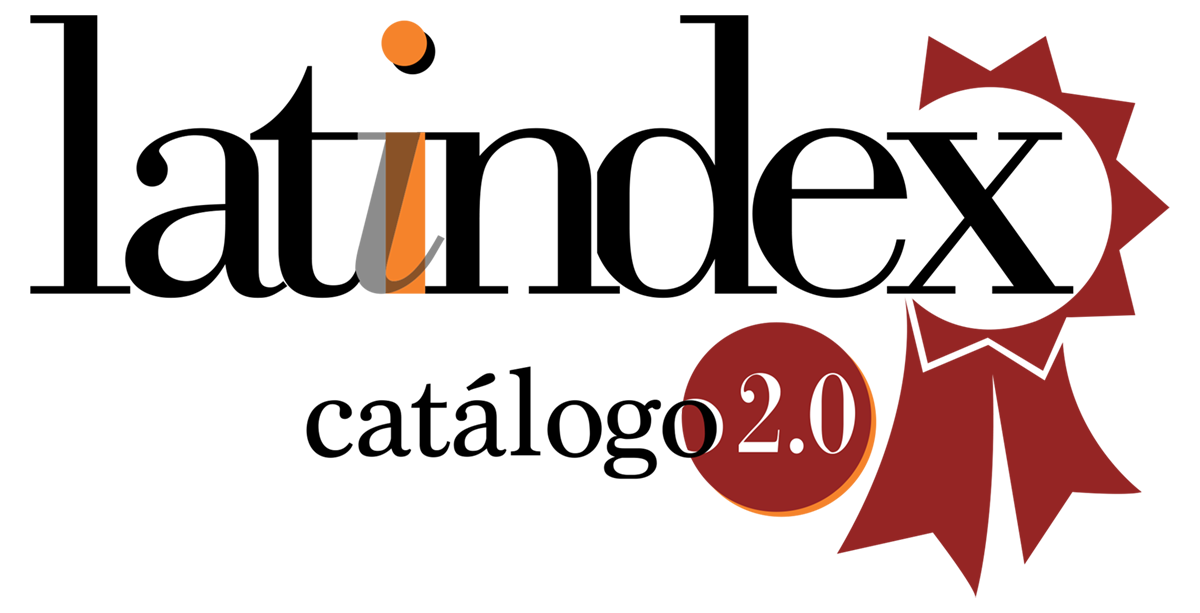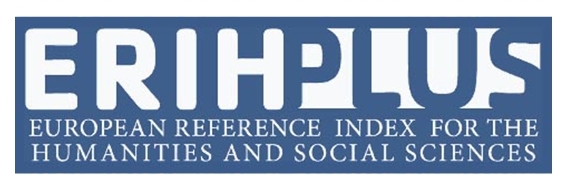The Families as Copies
Assisted Reproductive Techniques (ARTs) and Reproductive Inequalities
DOI:
https://doi.org/10.24215/24690333e034Keywords:
reproductive stratification, heteronormativity, assisted reproductionAbstract
Through different biographical narratives of users of Assisted Reproduction Techniques (ARTs) in Argentina, the article analyzes the social intersections that in
the family field express hierarchies, understood as the stratification of reproduction. From the user's narratives, these stratifications will be taked as copies related to a heterosexual, marital, and bio-connected family, taken as the original that express recognitions and stigma to their families.
Downloads
References
Bourdieu, P. y Wacquant, L. (1992). An Invitation to Reflexive Sociology. Chicago, Estados Unidos: University of Chicago Press.
Bourdieu, P. (1997). Razones prácticas. Sobre la teoría de la acción. Barcelona, España: Anagrama.
Brettschneider, M. (2006). Family Flamboyant: Race Politics, Queer Families, Jewish Lives. Albany, United States: State University of New York Press,
Butler, J. (2002). Is Kinship Always Already Heterosexual? Differences, 13(1), 14-44. https://doi.org/10.1215/10407391-13-1-14
Colen, S. (1995). Like a Mother to Them. In F. Gynsburg y R. Rapp (Eds.), Conceiving the New Word Order. The Global Politics of Reproduction (pp. 78-102). Berkeley, Estados Unidos: University of California Press.
Conde, I. (1994). Falar da Vida (II). Revista Sociologia. Problemas e Práticas, (16).
Decreto 956 (2013). Ley Nacional 26.862. Reproducción Medicamente Asistida. Recuperado de http://servicios.infoleg.gob.ar/infolegInternet/anexos/215000-219999/217628/norma.htm
Esquivel, V., Faur, E. y Jelin, E. (Eds.) (2012). Las lógicas del cuidado infantil. Entre las familias, el Estado y el mercado. Ciudad Autónoma de Buenos Aires, Argentina: Instituto de Desarrollo Económico y Social (IDES).
Fonseca, C. (2008). Homoparentalidade: novas luzes sobre o parentesco. Revista Estudos Feministas, 16(3), 769-783. https://doi.org/10.1590/S0104-026X2008000300003
Garay, R. (2008). El destino de ser madres: la ideología de la maternidad como soporte discursivo de las nuevas tecnologías reproductivas. En O. M. Tarducci (Ed.), Maternidades en el siglo XXI (pp. 29-59). Ciudad Autónoma de Buenos Aires, Argentina: Espacio Editorial.
Hayden, C. P. (1995). Gender, Genetics and Generation: Reformulating Biology in Lesbian Kinship. Cultural Anthropology, 10(1), 41-63. https://doi.org/10.1002/9780470775981.ch7
Herrera, M. (2 de octubre de 2014). Principales cambios en las relaciones de familia en el nuevo Código Civil y Comercial de la Nación. Recuperado de http://www.saij.gob.ar/marisa-herreraprincipales-cambios-relaciones-familia-nuevo-codigo-civil-comercialnacion-dacf140723-2014-10-02/123456789-0abc-defg3270-41fcanirtcod
Jociles Rubio, M. I. y Villamil Pérez, F. (2012). Madres solteras por elección: representaciones sobre la fecundación sexual como vía de acceso a la maternidad. Chungará (Arica), 44(4), 717-731. https://doi.org/10.4067/S0717-73562012000400012
Kaufman, S. R. y Morgan, L. M. (2005). The Anthropology of the Beginnings and Ends of Life. Annual Review of Anthropology, (34), 317-341. https://doi.org/10.1146/annurev.anthro.34.081804.120452
La Voz (26 de junio de 2013). Su pareja se embarazó, y Karina pide los 180 días por maternidad. Recuperado de https://www.lavoz.com.ar/ciudadanos/su-pareja-se-embarazo-karinapide-180-dias-maternidad
Ley de la Ciudad Autónoma de Buenos Aires 1.004 (2002). Unión Civil. Recuperado de https://www.buenosaires.gob.ar/registrocivil/normativa/ley-no-1004
Ley Nacional 26.618 (2010). Matrimonio Civil. Recuperado de http://servicios.infoleg.gob.ar/infolegInternet/anexos/165000-169999/169608/norma.htm
Ley Nacional 26.743 (2012). Identidad de Género. Recuperado de http://servicios.infoleg.gob.ar/infolegInternet/anexos/195000-199999/197860/norma.htm
Ley Nacional 26.862 (2013). Reproducción Medicamente Asistida. Recuperado de http://servicios.infoleg.gob.ar/infolegInternet/anexos/215000-219999/216700/norma.htm
Libson, M. C. (2012). Parentalidades gays y lesbianas: varones y mujeres en familias no heteronormativas. La ventana, 4(35), 292-321. https://doi.org/10.32870/lv.v4i35.731
Luna, N. (2001). Pessoa e parentesco nas novas tecnologias reprodutivas. Revista Estudos Feministas, 9(2), 389-413. https://doi.org/10.1590/S0104-026X2001000200005
Jociles Rubio, M. I. y Rivas Rivas, A. M. (2016). Cambios en la concepción y representación del parentesco a raíz del uso de las técnicas de reproducción asistida con donante. Ankulegi. Revista de Antropología Social, (20), 63-78. Recuperado de https://aldizkaria.ankulegi.org/index.php/ankulegi/article/view/93
Peñas Defago, M. A., Moran Faundes, J. y Vaggione, J. M. (6 de diciembre de 2018). Conservadurismos religiosos en el escenario global: amenazas y desafíos para los derechos LGBTI. Recuperado de https://sxpolitics.org/es/conservadurismos-religiosos-en-el-escenarioglobal-amenazas-y-desafios-para-los-derechos-lgbti/4167
Poveda, D., Rubio, M. I. J. y Rivas, A. M. (2011). Monoparentalidad por elección. Procesos de socialización de los hijos/as en un modelo familiar no convencional. Athenea Digital, 11(2), 133-154. https://doi.org/10.5565/rev/athenead/v11n2.835
Preciado, B. P. (2019). Un apartamento en Urano. Crónicas del cruce. Barcelona, España: Anagrama.
Rapp, R. (1999). Testing Women, Testing the Fetus: The Social Impact of Amniocentesis in America (Anthropology of Everyday Life). New York, United States: Routledge.
Rapp, R. (2001). Gender, Body, Biomedicine: How Some Feminist Concerns Dragged Reproduction to the Center of Social Theory. Medical Anthropology Quarterly, 15(4), 466-477. https://doi.org/10.1525/maq.2001.15.4.466
Rose, N. (2007). The Politics of Life it Self. Biomedicine, Power and Subjetivity in the Twenty First Century. Princeton, New Jersey: Princeton University Press.
Sautu, R., Boniolo, P., Dalle, P. y Elbert, P. (2005). Manual de metodología. Construcción del marco teórico, formulación de los objetivos y elección de la metodología. Ciudad Autónoma de Buenos Aires, Argentina: Consejo Latinoamericano de Ciencias Sociales (CLACSO)
Sgró Ruata, M. C. (2012). ¡Queremos Mamá y Papá! Cruces políticoreligiosos en la oposición al matrimonio igualitario en Córdoba (Argentina, 2010). Revista de Antropología y Sociología de la Universidad de Caldas, 14(2), 129-156. Recuperado de http://vip.ucaldas.edu.co/virajes/downloads/Virajes14(2)_8.pdf
Strathern, M. (1992). Reproducing the Future. Antropology, Kinship, New Reproductive Tecnologies. Manchester, England: Manchester University Press.
Strathern, M. (1995). Necessidade De Pais, Necessidade De Mães. Estudos Feministas, (2), 303-329.
Thompson, C. (2005). Making Parents. The Ontological Choreography of Reproductive Technologies. Cambridge, England: MIT Press books.
Vaggione, J. M. (2008). Las familias más allá de la heteronormatividad. En C. Motta y M. Sáez (Eds.), La mirada de los jueces, Tomo II (pp. 13-88). Bogotá, Colombia: Siglo del Hombre.
Vaggione, J. M. (2012). Introducción. En Morán Faúndes, J. M., Sgró Ruata, M. C. y Vaggione, J. M. (Eds.), Sexualidades, desigualdades y derechos. Reflexiones en torno a los derechos sexuales y reproductivos (pp. 13-55). Córdoba, Argentina: Editorial de la Universidad Nacional de Córdoba.
Vespucci, G. (2014). Una fórmula deseable: el discurso «somos familias» como símbolo hegemónico de las reivindicaciones gaylésbicas. Sexualidad, Salud y Sociedad (Rio de Janeiro), (17), 30-65. https://doi.org/10.1590/1984-6487.sess.2014.17.05.a
Viera Cherro, M. (2012). Inequidades múltiples y persistentes en el campo de la reproducción asistida. Revista de Antropología Social, (21), 251-271. https://doi.org/10.5209/rev_RASO.2012.v21.40058
Additional Files
Published
How to Cite
Issue
Section
License
Copyright (c) 2020 María Cecilia Johnson

This work is licensed under a Creative Commons Attribution-NonCommercial-ShareAlike 4.0 International License.
Current policy since 2019
The acceptance of an original by the journal implies the non-exclusive transfer of the patrimonial rights of the authors in favor of the publisher, who allows the reuse, after its edition (postprint), under a Creative Commons License Attribution-NonCommercial-ShareAlike 4.0 International.
According to these terms, the material can be shared (copy and redistribute in any medium or format) and adapted (remix, transform and create another work from the material), provided that a) the authorship and the original source of their publication (magazine and URL of the work) are cited, b) is not used for commercial purposes and c) the same terms of the license are maintained.
The assignment of non-exclusive rights implies that after postprint in Con X authors may publish their work in any language, media and format; in that case, it is requested that they signal that the material was originally published by this journal.
Assignment also entails the authors’ authorization for the work to be collected by SEDICI, the institutional repository of the Universidad Nacional de La Plata, and for it to be indexed in the databases that the publisher thinks appropriate for enhancing the visibility of the published work and its authors.
In addition, the journal encourages authors to submit their works to other institutional and thematic repositories after their publication in Con X, under the assumption that offering society unrestricted access to scientific and academic production contributes to a greater exchange in global knowledge.








.jpg)

.png)



.png)





















